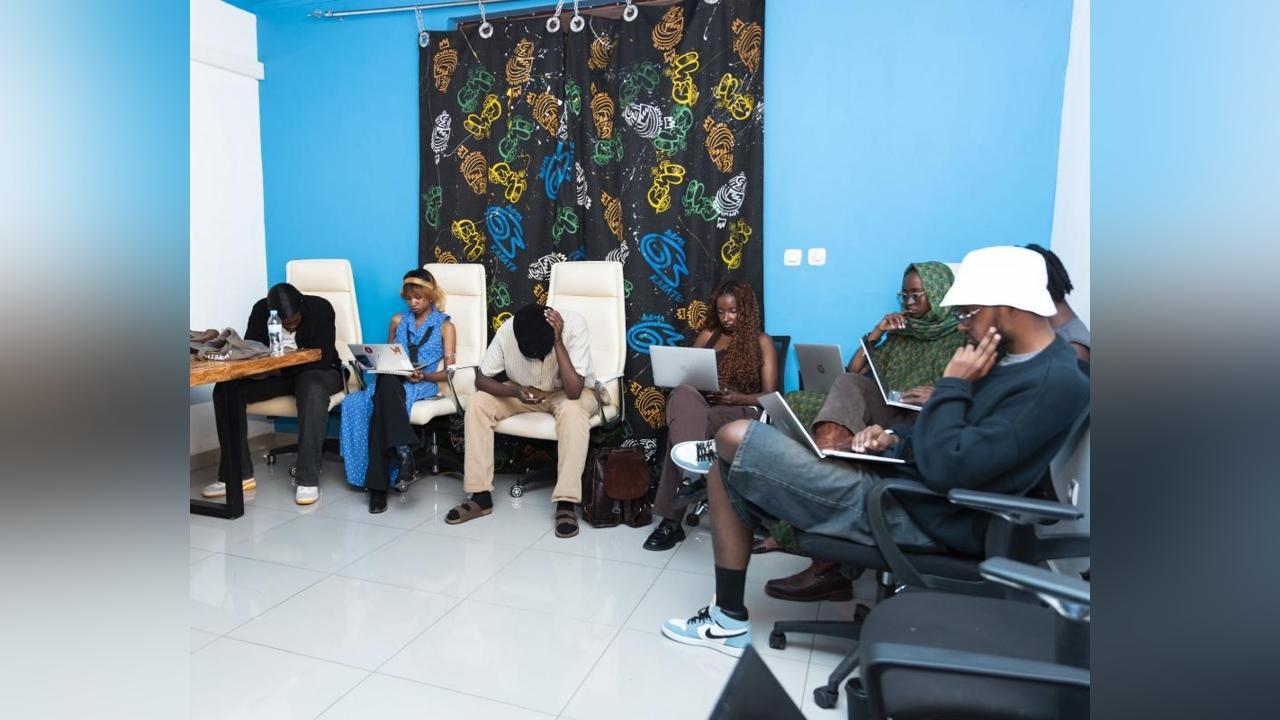Africa-Press – Rwanda. When Khalil Rizinde dreamed of creating a creative hub in Kigali, he knew exactly what it felt like to have ideas with no place to bring them to life. Growing up, he had no tools, no space, and no support to explore his creativity, and he didn’t want others to experience the same.
“I’ve always longed for a creative space to express myself,” he says. “Even though I never had access to such resources, I created Kigali Multimedia Hub so that others who share the same passion for creativity can have the tools and support they need.”
For him, the hub wasn’t just a business; it was a way to ensure that dreams wouldn’t be buried simply because of a lack of resources. He poured every bit of money and energy he could find into building it.
In the early days, most visitors were friends who came to show support. They invited their circles, and slowly, through word of mouth, the business began to grow.
But Rizinde admits that patience was one of his struggles. “One mistake I made when starting this business was being impatient. I wanted everything to happen immediately,” he said.
The entrepreneur is one among many young people who dream of starting a business, but often struggle to find where to start or complain about lack of resources. He represents the aspirations of thousands if not millions of young Rwandans.
Avoiding mistakes
Rizinde believes many young entrepreneurs make the mistake of expecting to succeed without learning.
“A lot of young people today want to start their business as professionals, expecting everything to be perfect and unwilling to learn. If you want to succeed, you must be willing to learn and to keep learning throughout your journey,” he says.
For Evariste Ntirugirisoni, a Kigali-based business mentor, that no entrepreneur can succeed in isolation. As such, young business owners must to seek out help from those who have been in the field before them.
Youths during video editing exercise at Kigali Multimedia Hub. Courtesy
“Approach people who’ve been in business; they can provide guidance that will save you from expensive mistakes. Accepting and applying advice, even when it challenges your views, can be the turning point between failure and growth,” he observes.
For Ntirugirisoni, preparation is just as important as passion.
“A business plan is like a map; it shows you where you’re going and helps you prove your idea to others,” he explains. He also advises young people to build credibility through references, whether from mentors, past work, or market research, before seeking investors or partners.
However, preparation isn’t just about paperwork.
Ntirugirisoni warns that impatience and recklessness are among the biggest threats to young entrepreneurs. “Before you start, study the market and understand what people in that area need,” he says. “Without this understanding, even a great idea can fall flat.”
Raising capital
Many young people who want to start business often point to lack of capital as a bottleneck to realise their dreams.
Ntirugirisoni maintains that the key lies in joining forces with others, insisting that partnerships and group ventures often have a better chance of convincing banks or other institutions to provide funding.
Still, he cautions that financial backing alone won’t guarantee success. “Your greatest foundation is a long-term vision and integrity. Without honesty, even the best idea will collapse.”
This is true for Nate Mulenga, the founder of Seven Streetwear, an apparel startup. When he started his business, he only had Rwf100,000, but his vision was bigger than his capital.
“We started with 100,000 RWF as our capital. We managed it by creating a few t-shirts and selling those to generate more revenue,” Mulenga recounts. Since August 2024, the business has grown impressively.
One of the biggest challenges was transitioning from t-shirts to hoodies while keeping the the pricesaffordable. “We overcame that by selling a surplus of t-shirts, and that gave us enough revenue to move on to the hoodies we now have.”
Along the way, Mulenga welcomed shareholders Joel Kiiza and Yannis Gatari, who played a crucial role in promoting the brand and expanding its reach to a wider audience.
For him, the biggest mistake many young entrepreneurs make is expecting instant success. “A lot of people think they will automatically make money, and when that doesn’t happen, they lose patience and give up.”
With Rwanda’s economy growing and industries expanding, Rizinde, Ntirugirisoni, and Mulenga all agree that the timing has never been better for young people to take action.
For More News And Analysis About Rwanda Follow Africa-Press






